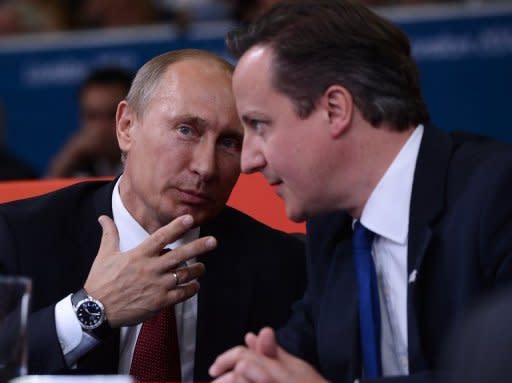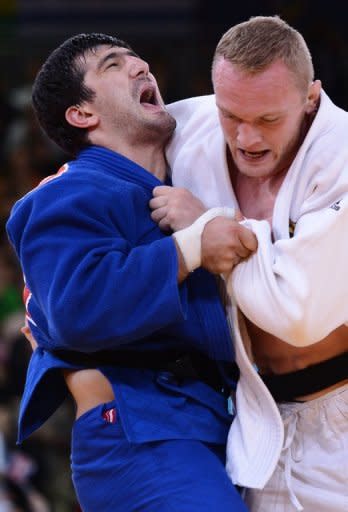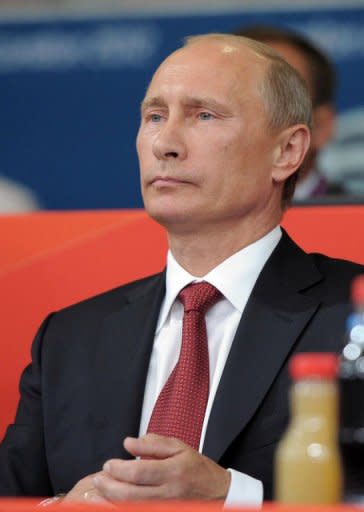Putin, Cameron fail to disguise differences on Syria
Russian President Vladimir Putin and British premier David Cameron failed to hide their differences on the Syrian crisis on Thursday before the two leaders watched the Olympic judo together. On his first visit to Britain for seven years, Putin pledged to work with Cameron to bring Syria's bloody 17-month conflict to an end. But after 45 minutes of talks at his Downing Street residence, Cameron acknowledged there was still a gulf between their stances on President Bashar al-Assad's regime and the spiralling violence in Syria. "There have been some differences in the positions that we've taken over the Syrian conflict," Cameron told reporters. "We both want to see an end to that conflict and a stable Syria, and will continue to discuss with our foreign ministers how we can take this forward," he added. Britain has joined the United States in condemning Russia's opposition to UN action on the Syrian conflict, where human rights monitors say 20,000 people have been killed. Russia and China have jointly blocked three UN Security Council resolutions that would have imposed sanctions on Assad's government, and have refused to join international calls for his departure. The talks between Putin and Cameron took place shortly before Kofi Annan announced he was quitting as UN-Arab League envoy for Syria after battling in vain to persuade Assad to accept a peace plan. The Russian leader called Annan's resignation a "great shame" that should not deter efforts to find a diplomatic solution to the conflict. "Kofi Annan is a man of great merit, a brilliant diplomat and a very honest person, so it is a great shame," Putin said, according to Russian agencies. Moscow's UN envoy said that Russia regretted the former UN chief and Nobel peace laureate's decision to step down. "We understand that that's his decision; we regret that he chose to do so," Ambassador Vitaly Churkin told reporters at UN headquarters, insisting that Russia had always supported the envoy "very strongly." Putin made no direct reference following the talks with Cameron to Russia's continuing support for Assad, but said there were some areas where Moscow and London "see eye-to-eye". "We agreed to continue working to find a viable solution," he said. After their talks the two leaders headed to the ExCeL Centre in east London to watch medals being won in the Olympic judo competition. Putin is a black belt in the martial art and has often been filmed in Russia training with judokas as part of his image as a sportsman and lover of rugged pursuits. The leaders sat together at the arena and talked animatedly through a translator as they watched Russia's Tagir Khaibulaev take the gold in the men's under-100kg category. After the contest, Putin threw his arms in the air and hugged Khaibulaev. Cameron's presence, however, brought less luck to Britain's Gemma Gibbons, who lost out to US judoka Kayla Harrison in the battle for the under-78kg women's title and had to settle for silver. Queen Elizabeth II's husband Prince Philip also paid a brief visit to the judo. It was Putin's first visit to Britain since the G8 summit at Gleneagles in 2005, a year before British-Russian relations plunged into deep freeze after Kremlin critic Alexander Litvinenko was killed by radiation poisoning in London. Cameron visited Moscow last year in a bid to break the ice and also met with Putin on that occasion in the first high-level contact between the Russian and any British minister or diplomat since 2007. The two countries remains far apart on the Litvinenko case. Russia's refusal to extradite Andrei Lugovoi, the chief suspect in the murder who later became a lawmaker, is one sticking point. Lugovoi, who is accused of lacing Litvinenko's tea with polonium, denies any involvement.




